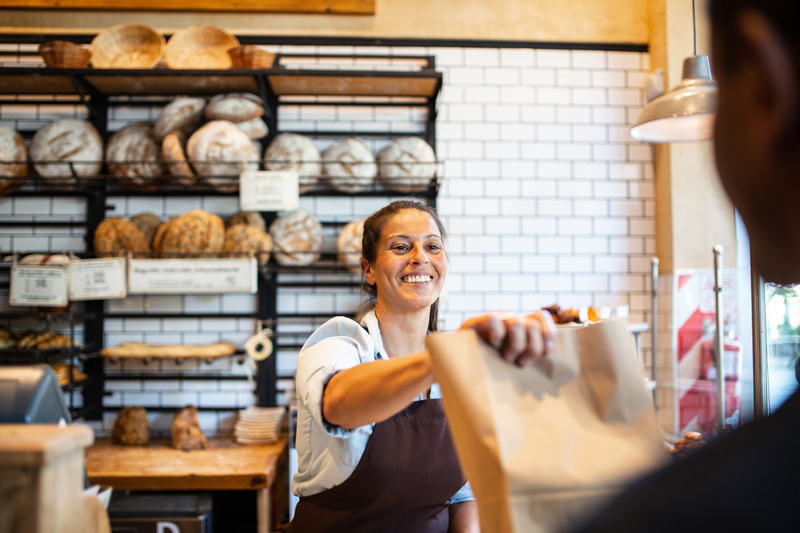

For Restaurants
From Boardrooms to Dining Rooms: The Rising Tide of Sustainability
How Restaurants Can Adapt as the Appetite for Sustainable Business Dining Grows
This year has been a season of reflection and adaptation, with sustainability and climate change emerging as paramount concerns in the national dialogue and across industries. A staggering 65% of businesses now identify sustainability as their most important initiative, highlighting a growing awareness among corporations that they play a crucial role in mitigating climate change.
In our latest State of Business Dining Report, we unpacked the data and trends restaurants need to know to reach sustainability-minded companies and business diners. Here’s the rundown.
Sustainability impacts corporate travel policies and preferred vendors.
Companies are increasingly taking action to reach their sustainability goals. More than 700 of the 2,000 largest publicly traded companies have made net zero carbon emissions commitments. For many companies, that involves revisiting travel policies to reduce their carbon footprint, cutting back on non-essential business travel, and seeking “greener” suppliers. Hotels, airlines, and rental car companies are reacting accordingly, highlighting their own sustainable practices and commitments. The pressure is mounting for corporate suppliers — including restaurants — to embrace sustainability and take action to stay competitive.
Diners are willing to pay a premium for sustainability.
The heightened focus on sustainability isn’t limited to the boardroom; it also extends to diners. 53% of travelers say they are more committed to sustainability now than in the past. The majority of consumers (68%) now say they believe climate change is an emergency, and their values are increasingly shaping their spending habits. Studies reveal that 36% of Millennials and 50% of Gen Z are willing to pay up to 20% more for dining in “green” restaurants.
These restaurant sustainability practices resonate most with diners.
Interestingly, some of the strongest indicators of sustainability, such as managing food waste and using eco-friendly packaging, are relatively uncomplicated practices that restaurants can readily adopt. Here are the top 5 elements of sustainability that are important to diners, according to a study by Simon-Kucher.
- Food waste management
- Packaging material
- Emissions from distribution
- Resources used in production
- Source of raw material
Check out the Q3 2023 State of Business Dining Report to learn more about how sustainability increasingly shapes business travel and consumption, how restaurants can embrace sustainability, and how restaurants like Shake Shack are taking a multi-pronged approach to reduce their environmental footprints.
Q3 | 2023
State of Business Dining Report
The free Q3 State of Business Dining Report is now live! Download for exclusive data, insights, and tips for restaurants.
